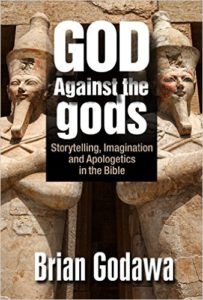
but sanctify Christ as Lord in your hearts, always being ready to make a defense to everyone who asks you to give an account for the hope that is in you, yet with gentleness and reverence;
1 Peter 3:15
The number of Christians who know virtually nothing about apologetics still amazes me. When discussing this topic even with pastors I often receive a blank stare that suggests they’ve never considered apologetics to be of much importance. Clearly, this needs to change. Here are four reasons why.
Reason #1 – Skepticism is at an all-time high and that breeds confusion.
In fact you could say that there is also an inverse relationship between confusion and skepticism. Skepticism in the culture breeds confusion in the church but it is also true that skepticism about the adequacy of the Christian faith within the church breeds confusion in the culture. If Christians won’t affirm what it is they believe why should the culture listen to anything they say?
The American religious landscape is in a state of flux. I’ve written about this elsewhere previously. New category entrants include the “nones” and the “dones.” The nones claim no religious affiliation and the dones have abandoned religious affiliation. The dones will most assuredly transition into the nones if they are not reached with reasons to believe the Gospel. The church is ill-equipped to do this when their foundation is skepticism and confusion.
Reason #2 – Young people are leaving the church for several reasons.
Some fall prey to the predators on our college campuses masquerading as professors and teachers. Don’t be deceived friends. There are myriad stories of college professors who are forthright in their intentions to destroy the Christian faith of their freshman students so that they can be free of the intellectual shackles of Christianity. Parents, do you really intend to turn your children over to the wolves without a fight?
Reason #3 – Apologetics strengthens the faith of believers.
Let’s be perfectly clear about something friends. It is a known fact among Christians that a vast majority is downright fearful of friends, co-workers, even family members challenging them on why they believe what they believe. Most Christians are not prepared to give a simple answer to a simple question. Being unprepared breeds fear and fear causes believers to shy away from situations that will require them to defend their faith. Understanding that there is a vast depository of historical data that forms the basis for reasonable answers to every objection raised up against the Christian faith strengthens the faith of believers.
Reason #4 – Apologetics is integral to evangelism.
I was speaking with Lenny Esposito, President of Come Reason Ministries recently and we discussed this often overlooked truth. Apologetics is not incidental to evangelism; it forms the very heart of evangelism. Although the idea of apologetics being a necessary part of one’s faith is met with surprise today, this was not the case in the early church. Giants of the faith such as Justin Martyr, Irenaeus of Lyons, and Tertullian wrote extensively about cultural issues of their day and provided robust and intelligent responses that pointed people to Jesus Christ.
CS Lewis once remarked, “One must keep on pointing out that Christianity is a statement which, if false, is of no importance, and if true, of infinite importance. The one thing it cannot be is moderately important.”
Friends I encourage you today to take up the responsibility for your discipleship and study to show yourself ready to be a witness for the Lord Jesus Christ. When you do you will experience a transformation in your faith.




